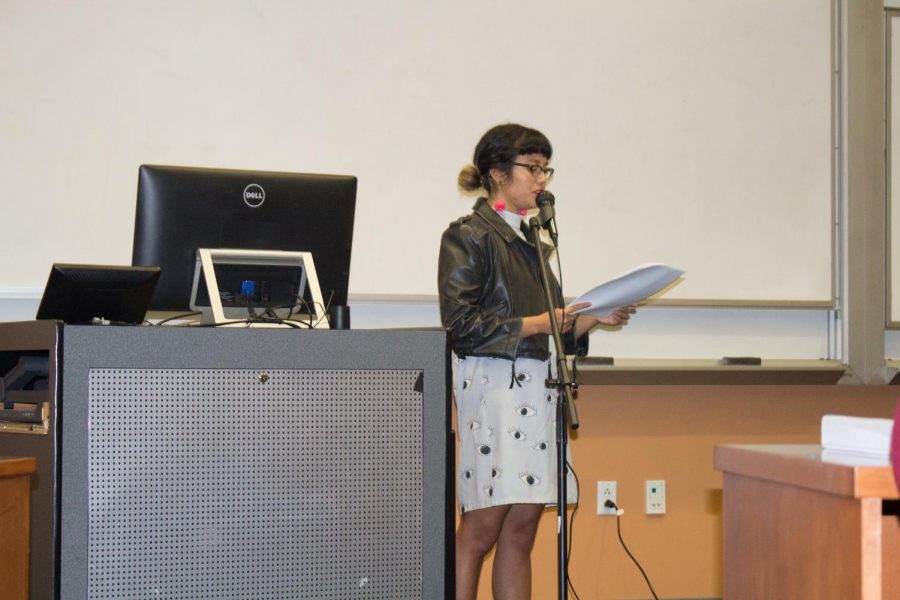Literary series opens with politically and emotionally charged presentation
Speaker Jackie Wang reads to audience members at a Liteary series event Oct. 4.
October 13, 2018
Jackie Wang, Boston based writer and poet, spoke about her experience and research on the United States continuum of incarceration and read from her recently published book of essays, Carceral Capitalism at the first Community and World Literary Series (CWLS) event this fall.
Wang is a black studies scholar, prison abolitionist, poet, filmmaker, performer and PhD candidate at Harvard University in African and African American Studies. She gave insight about what her process was for her book.
Carceral Capitalism cover issues regarding predatory policing, juvenile delinquency, police technology, algorithmic policing and the political economy of fees and fines.
“The way that [the book] is structured is that it’s some really dense theoretical essays that are ventilated with more creative pieces,” Wang said.
Mixing research and facts with imagery of plant life, flowers and seeds of the future, Wang seemed to captivate the audience. Third year CSUSM student, Jacy Frazee said, “it was the first [CWLS event] I’d ever gone to and from not ever reading her work, it was interesting to hear it performed live. I thought it was interesting because the contrast between the lyrical metaphorical language she used and the seriousness of the issues she presented created a good tension.”
Wang said that the process of writing the book was not a linear one. When she was younger, her older brother was given a juvenile life without parole sentence to prison in Florida; home to one of the United States largest prison systems. During the time Wang was writing Carceral Capitalism, that same brother had a resentencing hearing and his time in prison was commuted to 40 years. This occurrence made Wang update one of the essays in her book about juvenile prison sentences.
She said that while the topics covered in her essays were difficult and oftentimes sad to talk about, she wanted to end the book on a more positive note.
“In some ways, the first part of the book is the nightmare that I’m writing and the conclusion is the dream. So it’s about the social visions of activists and revolutionaries and the politics of dreaming,” she said.
For more information about Wang or her work, students can visit her Instagram at @loneberry or Tumblr at http://loneberry.tumblr.com/
The CWLS will host their next reading on Oct. 18 in Markstein Hall 125.


